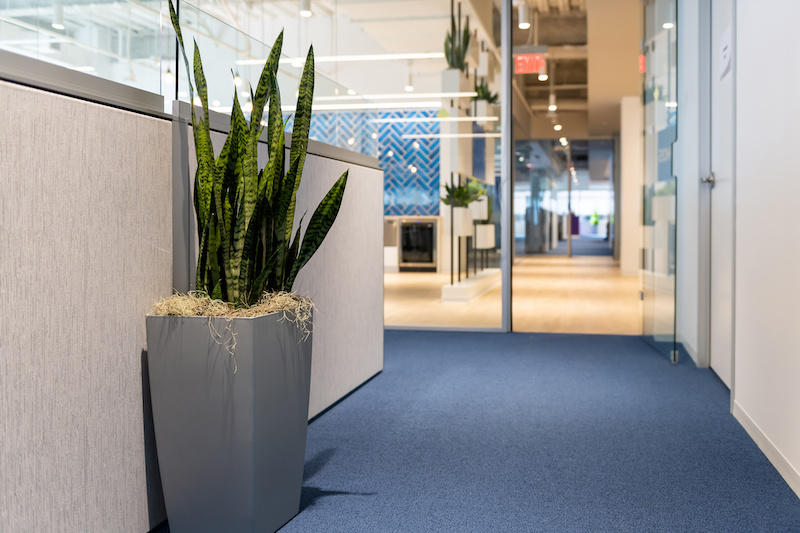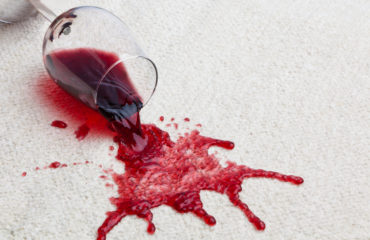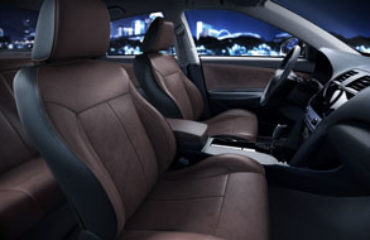To bolster your carpet cleaning business, it is helpful to understand different types of carpets and where they work best in your customer’s home or office. Carpet is made from various materials and features different carpet fibers that work better in some locations than others.
Learn which carpet is best for high traffic areas like entryways or hallways so that you can help your customers make the right carpet decisions and ensure you use the proper techniques to clean their high traffic carpet.
Common High Traffic Areas
The highest traffic areas for residential and commercial properties are located in transitional areas. High traffic areas are also found in spaces where people gather together regularly. These areas see a lot of daily foot traffic, which causes the carpet to show signs of wear and tear if it is not a heavy-duty carpet.
A few examples of residential high traffic areas are:
- Hallways
- Entryway/foyer
- Doorways
- Family room
- Staircase
- Dining room
A few examples of commercial high traffic carpet areas are:
- Hallways
- Doorways
- Entryways
- Areas surrounding desks/workstations
- Near registers/front desks
- Waiting rooms
Carpet Construction
In the world of carpets, there are several features to consider when determining the best type for a high traffic area. When creating carpets, manufacturers weave together thousands of fibers of carpet yarn. The yarn can be made from several materials such as nylon, olefin, polyester, or wool.
The fibers are attached to a backing through a process called tufting. During tufting, a needle pulls the fibers through the backing in differing loop piles. Loop pile refers to the length and design of the carpet fiber.
If the carpet is stitched into closed loops, it is called a loop carpet. If the carpet fibers are cut at one end, they are referred to as cut-pile. Low-pile carpets are flat, smooth, and firm, whereas high-pile cut fibers create a more plush carpet.
Before going through this process, the pieces of yarn are dyed, typically through boiling, with the preferred shade to create a beautiful color carpet. Once the fibers are pulled through the backing, they are secured with a bonding adhesive.
Carpet Fiber Types
The type of carpet fiber used to create the piece plays a significant part in determining its use for high traffic areas. The four most common types of carpet fibers are nylon, olefin, polyester, and wool.
Nylon
Nylon is a synthetic fiber that is one of the best living room carpets, best indoor carpet, and best commercial carpet materials available. It is durable and holds its shape against constant foot traffic. Nylon works well as a living room carpet because it is exceptionally resistant to soaking up spills from kids or pets. Nylon fibers are also amenable to coloring, which provides multiple designs and pattern options for consumers.
Olefin
Olefin is the chemical name for polypropylene fiber. It works well as an indoor or outdoor carpet fiber due to its high moisture and stain-resistant characteristics. Despite its other desirable qualities, it is not the most durable high traffic carpet. It gathers oils and dirt, which is not ideal for high traffic areas. It also requires professional cleaning in most cases because of its densely packed fibers.
Polyester
Polyester carpet fibers are made from polyethylene terephthalate (PET). These synthetic fibers are typically one of the most cost-effective carpet material options. Polyester is somewhat durable and is a good choice for areas with moderate foot traffic.
However, polyester does not perform as well as a carpet for heavy traffic areas in commercial settings as the foot traffic is too much for the fibers. It may work as a high traffic carpet in a residential setting.
Wool
Wool is a natural material made from animal coats, such as sheep or goats. Wool carpets are sometimes made with a blend of natural and synthetic wool. A carpet made from wool is one of the best carpets for high traffic areas due to its durability, moisture resistance, and stain resistance properties.
Which Type of Carpet is Best?
The best carpet for high traffic areas holds its shape and stands up to stains, moisture, dirt, oil, and discoloration. The best high traffic carpet features a low-pile cut made from durable fibers like wool or nylon.
For commercial spaces
Nylon and wool are the most durable carpet types for commercial areas. Each can come at a high cost, but most commercial building owners are willing to pay for a higher quality carpet since it lasts much longer.
These durable fibers can withstand the foot traffic from a daily working environment much better than olefin or polyester. Nylon holds together well, but it will likely require a stain-resistant treatment to maintain its appearance in a commercial or residential setting.
One important consideration for commercial spaces is that the carpet does not need to be cozy or comfortable like in a home setting. This allows for a broader range of low-pile, durable fiber choices.
For residential spaces
In residential spaces, any of the four common fibers can work as a high traffic carpet for home. Although wool and nylon are generally considered the most durable, they are also the most expensive types of carpet. Families can benefit from choosing the more affordable polyester or olefin options instead.
The best carpet for a high traffic family room is likely polyester, as it is affordable, comfortable, and allows for a range of coloring options. Olefin is also a good option, as it resists fading due to sunlight or cleaning products. Both olefin and polyester likely require professional cleaning because their tightly woven fibers are hard to reach without the right equipment.
Learn to Clean Any Type of Carpet
If you want to learn more about carpets and carpet cleaning, consider becoming a DryMaster affiliate. With DryMaster, you gain access to carpet cleaning training and equipment that prepares you to work on any type of carpet. You’ll learn more about what carpet is best for high traffic areas and the most up-to-date techniques you can use to run your own carpet cleaning business.
Contact DryMaster Solutions today at 1-855-848-3076 to learn how you can benefit from becoming a DryMaster affiliate.




